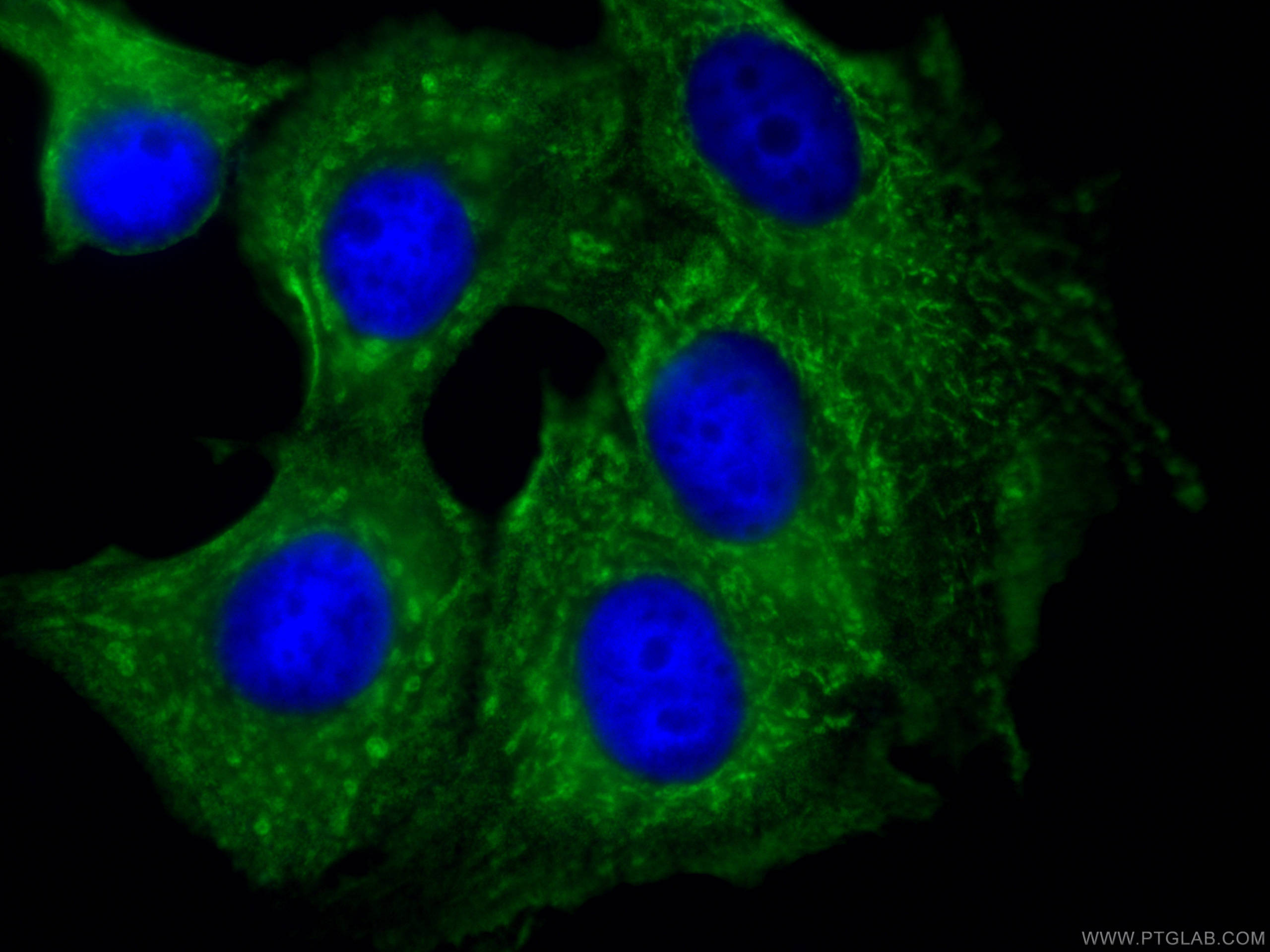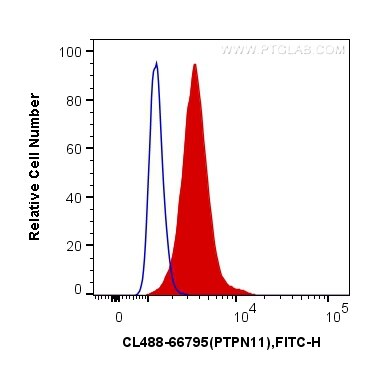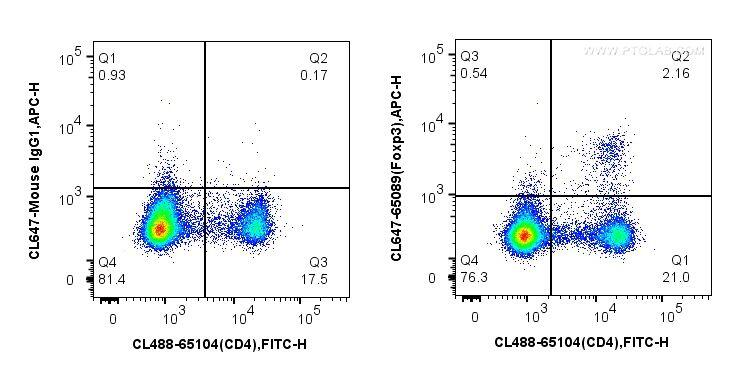Anticorps Monoclonal anti-PTPN11/SHP2
PTPN11/SHP2 Monoclonal Antibody for FC (Intra), IF
Hôte / Isotype
Mouse / IgG1
Réactivité testée
Humain, rat, souris
Applications
IF, FC (Intra)
Conjugaison
CoraLite® Plus 488 Fluorescent Dye
CloneNo.
3F8A8
N° de cat : CL488-66795
Synonymes
Galerie de données de validation
Applications testées
| Résultats positifs en IF | cellules MCF-7, |
| Résultats positifs en cytométrie | cellules MCF-7, |
Dilution recommandée
| Application | Dilution |
|---|---|
| Immunofluorescence (IF) | IF : 1:50-1:500 |
| Flow Cytometry (FC) | FC : 0.40 ug per 10^6 cells in a 100 µl suspension |
| It is recommended that this reagent should be titrated in each testing system to obtain optimal results. | |
| Sample-dependent, check data in validation data gallery | |
Informations sur le produit
CL488-66795 cible PTPN11/SHP2 dans les applications de IF, FC (Intra) et montre une réactivité avec des échantillons Humain, rat, souris
| Réactivité | Humain, rat, souris |
| Hôte / Isotype | Mouse / IgG1 |
| Clonalité | Monoclonal |
| Type | Anticorps |
| Immunogène | PTPN11/SHP2 Protéine recombinante Ag13649 |
| Nom complet | protein tyrosine phosphatase, non-receptor type 11 |
| Masse moléculaire calculée | 597 aa, 68 kDa |
| Poids moléculaire observé | 68 kDa |
| Numéro d’acquisition GenBank | BC008692 |
| Symbole du gène | PTPN11 |
| Identification du gène (NCBI) | 5781 |
| Conjugaison | CoraLite® Plus 488 Fluorescent Dye |
| Excitation/Emission maxima wavelengths | 493 nm / 522 nm |
| Forme | Liquide |
| Méthode de purification | Purification par protéine G |
| Tampon de stockage | PBS avec glycérol à 50 %, Proclin300 à 0,05 % et BSA à 0,5 %, pH 7,3. |
| Conditions de stockage | Stocker à -20 °C. Éviter toute exposition à la lumière. Stable pendant un an après l'expédition. L'aliquotage n'est pas nécessaire pour le stockage à -20oC Les 20ul contiennent 0,1% de BSA. |
Informations générales
PTPN11 (protein tyrosine phosphatase, non-receptor type 11) is also named as PTP-1D, PTP2, PTP2C, PTP3, SHP2, CFC, CFC, BPTP3, SH-PTP2, SH-PTP3, MGC14433 and belongs to the protein-tyrosine phosphatase family and non-receptor class 2 subfamily. It modulates and regulates signaling through numerous pathways, many of which are active in the developing endocardial cushions and implicated the ERK pathway as a central mechanism (PMID: 19017799). Its signaling may play equally important roles in retinal survival in both physiological and pathological conditions (PMID: 21576358). Defects in PTPN11 are the cause of LEOPARD syndrome type 1 (LEOPARD1), Noonan syndrome type 1 (NS1), juvenile myelomonocytic leukemia (JMML) and metachondromatosis (MC). It has 3 isoforms produced by alternative splicing.
Protocole
| Product Specific Protocols | |
|---|---|
| IF protocol for CL Plus 488 PTPN11/SHP2 antibody CL488-66795 | Download protocol |
| Standard Protocols | |
|---|---|
| Click here to view our Standard Protocols |




